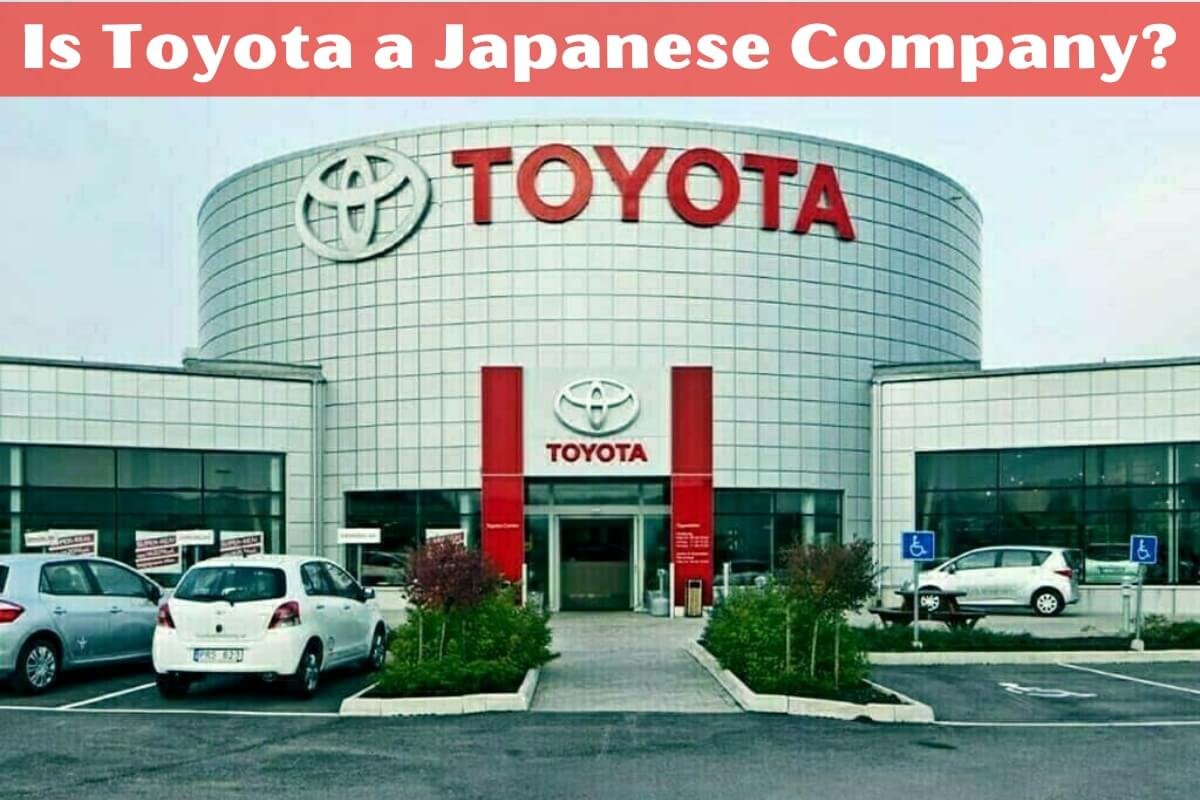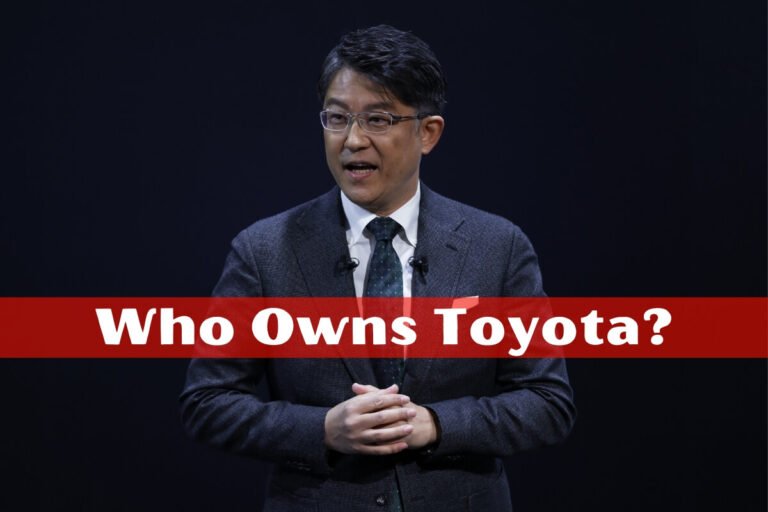Is Toyota a Japanese Company? An In-Depth Exploration

The automotive industry is a highly competitive global marketplace, with brands from various countries vying for consumer loyalty and market share. Among the most recognizable names in this arena is Toyota, a brand synonymous with reliability, innovation, and quality. However, for those unfamiliar with the company’s origins, a question arises:
Is Toyota a Japanese company?
Yes, Toyota is a Japanese company through and through. Founded in Japan and deeply rooted in Japanese culture and values, Toyota has grown into a global automotive giant while maintaining a strong connection to its homeland. In this article, we’ll delve into the rich history, background, and operations of Toyota to uncover the truth about its Japanese identity.
We’ll explore Toyota’s origins and early years, tracing its journey from a small weaving company to a pioneering force in the automotive industry. We’ll also examine the company’s headquarters and major production facilities, providing insights into its extensive domestic operations and workforce.
Furthermore, we’ll shed light on Toyota’s ownership and management structure, revealing the Japanese individuals and institutions at the helm of this corporate powerhouse. Additionally, we’ll discuss Toyota’s global presence and expansion, showcasing how the company has successfully adapted to local markets while preserving its Japanese heritage.
Beyond the corporate aspects, we’ll dive into Toyota’s brand identity and its deep roots in Japanese culture, exploring the company’s values, principles, and commitment to quality and innovation. We’ll also touch upon Toyota’s contributions to the Japanese economy and society, underscoring its significance as a national icon.
Finally, we’ll look ahead to Toyota’s future outlook and the challenges it faces in an ever-evolving automotive landscape. We’ll discuss the company’s plans for sustainable mobility and electric vehicle development, as well as its efforts to address global challenges while staying true to its Japanese roots.
So, fasten your seatbelts as we embark on this journey to uncover the truth about Toyota’s Japanese identity. Get ready to explore the fascinating history, operations, and cultural significance of this automotive titan.
Toyota’s Origins and Early History
To truly understand Toyota’s Japanese identity, we must delve into its humble beginnings and early years. The story of Toyota can be traced back to the early 20th century when Sakichi Toyoda, a Japanese inventor and entrepreneur, established the Toyoda Automatic Loom Works in 1926.
Sakichi’s son, Kiichiro Toyoda, shared his father’s innovative spirit and had a keen interest in automobiles. In 1933, Kiichiro founded the Automotive Department within the Toyoda Automatic Loom Works, laying the foundation for what would eventually become Toyota Motor Corporation.
It’s worth noting that the company’s name was initially spelled “Toyoda,” which was derived from the family name of its founders. However, in 1937, the name was changed to “Toyota” due to the belief that the Japanese word “Toyota” (meaning “fertile rice fields”) carried a more auspicious meaning with its eight strokes, a lucky number in Japanese culture.
Toyota’s first passenger car, the Model AA sedan, rolled off the production line in 1936, marking a significant milestone in the company’s journey. Despite facing numerous challenges during World War II, Toyota persevered and continued to innovate, eventually emerging as a leading force in the Japanese automotive industry.
Toyota’s Headquarters and Major Production Facilities
To further solidify its Japanese identity, Toyota’s global headquarters are located in Toyota City, Aichi Prefecture, Japan. This industrial city, situated east of Nagoya, serves as the nerve center for Toyota’s worldwide operations, housing various corporate functions and decision-making processes.
However, Toyota’s presence in Japan extends far beyond its headquarters. The company boasts numerous manufacturing plants and facilities strategically located across the country. These include iconic facilities such as the Honsha Plant, Motomachi Plant, and Takaoka Plant, among many others.
These state-of-the-art production facilities employ thousands of skilled Japanese workers, contributing significantly to the country’s manufacturing sector and economy. Toyota’s domestic operations are a testament to the company’s commitment to its Japanese roots and its desire to maintain a strong foothold in its home market.
Toyota’s Ownership and Management Structure
To further solidify its Japanese identity, it’s important to understand Toyota’s ownership and management structure. Toyota Motor Corporation is a publicly-traded company listed on the Tokyo Stock Exchange, with its shares widely held by Japanese individuals and institutions.
While Toyota has a global presence and a diverse shareholder base, the majority of its shares are owned by Japanese entities, ensuring that the company remains firmly rooted in its Japanese heritage and values.
Furthermore, Toyota’s top leadership and management team are predominantly Japanese nationals, reflecting the company’s deep-seated cultural ties. From the Chairman and President to the various executive roles, Toyota’s decision-making processes are guided by individuals who have a profound understanding of Japanese business practices and cultural nuances.
This Japanese ownership and management structure plays a crucial role in preserving Toyota’s identity and ensuring that the company adheres to its core principles and values, which are deeply intertwined with Japanese culture and traditions.
Toyota’s Global Presence and Expansion
While Toyota’s origins and foundations are undeniably Japanese, the company’s success and growth have propelled it to become a truly global automotive giant. Over the years, Toyota has strategically expanded its operations and established manufacturing facilities in various countries around the world.
From North America to Europe, Asia, and beyond, Toyota has adapted to local markets while maintaining its Japanese heritage and values. This global presence has allowed Toyota to cater to diverse consumer preferences and regulatory requirements, solidifying its position as a leading automotive brand on a global scale.
However, despite its international footprint, Toyota has remained steadfast in its commitment to its Japanese roots. The company’s global operations are guided by the same principles and values that have been ingrained in its corporate culture since its inception – a testament to Toyota’s ability to strike a delicate balance between global expansion and preserving its Japanese identity.
Toyota’s Brand Identity and Japanese Culture
Toyota’s brand identity is deeply intertwined with Japanese culture and values, shaping the company’s approach to product development, customer service, and overall business practices.
At the core of Toyota’s brand identity lies a relentless pursuit of quality, efficiency, and innovation – values that are deeply rooted in Japanese culture and traditions. From the meticulous attention to detail in manufacturing processes to the unwavering commitment to continuous improvement, Toyota’s operations are infused with principles that reflect the Japanese way of life.
Moreover, Toyota’s brand identity is closely tied to concepts such as “monozukuri” (the art of conscientious manufacturing) and “kaizen” (continuous improvement), both of which have their origins in Japanese philosophy and work ethics.
Toyota’s contributions to the Japanese economy and society further cement its Japanese identity. The company is a source of immense pride for the nation, providing employment opportunities and driving innovation within the automotive industry and beyond.
Toyota’s Future Outlook and Challenges
As the automotive industry undergoes rapid technological advancements and shifting consumer preferences, Toyota remains committed to addressing global challenges while staying true to its Japanese roots.
One area of focus for Toyota is sustainable mobility and the development of electric vehicles (EVs). The company has invested heavily in research and development, aiming to create environmentally friendly and efficient EVs that cater to the evolving needs of consumers worldwide.
However, Toyota’s approach to EVs is deeply influenced by its Japanese heritage and values. The company’s efforts are guided by principles such as sustainability, efficiency, and quality – hallmarks of Japanese culture and traditions.
Additionally, Toyota faces the challenge of adapting to changing market dynamics and consumer preferences while maintaining its brand identity and core values. As the automotive landscape continues to evolve, Toyota must strike a delicate balance between innovation and preserving its Japanese essence, ensuring that its products and services resonate with consumers globally while staying true to its roots.
Let’s Wind UP
after a comprehensive exploration of Toyota’s history, operations, and brand identity, it is evident that the company is a Japanese entity through and through. While it has achieved global success and expanded its operations worldwide, Toyota remains deeply rooted in its Japanese heritage, upholding the values and principles that have made it a renowned and respected automotive brand. As Toyota navigates the future, it will undoubtedly face challenges, but its unwavering commitment to its Japanese origins will continue to guide its journey towards excellence and innovation in the ever-evolving automotive realm.






